From Rejection to Multiple Offers (PhD in Psych)
I was devastated the first time that I applied to PhD programs in clinical psychology. Out of the 9 schools I applied to, I didn’t get any interviews or offers— here’s a sad mirror selfie I took on the day I found out that I hadn’t gotten into any programs during my first application cycle.
Although I majored in psychology in undergrad at DePaul University, I was never quite sure what I wanted to do with my degree. I knew that I loved learning about psychology, especially psychopathology, and that I have always felt called to work with and support under-resourced and under-researched communities and populations. I feel drawn to trying to understand the lived experiences of people different than myself, which led me directly toward pursuing research opportunities while I was still in school.
On the recommendation of one of my professors/research mentors, I applied to and was accepted at a weekend conference on diversifying the field of clinical psychology at the University of North Carolina- Chapel Hill. While there, I was introduced to Dr. Mitch Prinstein and his guide to applying to psychology graduate school (an invaluable resource!) However, while I was excited about the prospect of a career in psychology, I also felt overwhelmed. The other conference attendees were talking about their recent publications, years of prior research experience, and knowing exactly what they wanted to study.
I also found out during that weekend that clinical and counseling psychology graduate programs are the most competitive graduate programs to get into - more so than medical school, law school, or business school. During a faculty panel, one professor stated that she would not even consider PhD applicants who had not spent at least two years doing research after undergrad and I steeled myself, trying to understand the influx of information I was receiving and develop a plan to get myself into a graduate program.
After graduating from DePaul, I worked full-time as a research assistant in a lab that studies the neuropsychology of forensic psychopathy for 8 months, where I learned to administer clinical and neurocognitive assessments, enter data, and collect genetic samples. I left my role as a research assistant to be a Fulbright English Teaching Assistant in Spain for a year, and upon returning to the United States in Summer 2019, I went right back to working in research. As I was doing research that I loved and teaching English (and traveling) in Spain, I kept psychology PhD programs in the back of my mind and tried to ensure that I was still making progress on my goal of being admitted to a PhD program.
As I prepared to apply to clinical psychology PhD programs, I went over the checklist that I had created in my mind, one that I truly believed held the key to getting into a good program: I had spent two years since undergrad working in research and teaching, I had hands-on research experience specifically in my area of interest, and I had strong letters of recommendation. In my mind, although I knew how competitive clinical/counseling PhD applications are, I was sure that I had done everything I needed to do to be a competitive candidate, so I drafted statements and applied to 9 programs. I got rejected from every single program without getting any interview invitations.
I spent a lot of time questioning my self-worth and examining my motivation for wanting a PhD in psychology— I thought I was a qualified applicant, but it felt like that wasn’t the case anymore. I felt dejected, incompetent, and really disappointed. Why had I even wanted to apply in the first place? What did I want to do with the degree? Why did I have to get a degree in psychology rather than something else? Was it possible to find another field that would satisfy my intellectual curiosity in the same way that psychology did?
Essentially, I had to decide for myself whether or not the end goal I envisioned was worth it to me. I am thankful for mentors, friends, and family who encouraged me, supported me, and helped me prepare to apply for a second time. With their support, my second application cycle was much more fruitful—of the 9 programs I applied to, I received 6 interviews and multiple offers to attend programs with full funding.
Here’s what I did from one cycle to the next that I believe helped make me a more competitive applicant:
I spent a lot of time getting more familiar with the literature. The first time that I applied, I spoke more generally about my interests in psychopathy and antisocial behavior, but I wasn’t able to talk about my interests with the specificity that doctoral programs are looking for. By the time I re-applied, I was able to speak directly to my interests in the developmental psychopathology of antisocial traits, risk and resilience, gene x environment interactions, and the multifinality of childhood trauma.
I prepared and submitted a first-author manuscript for publication. While this is not a requirement to get into psychology PhD programs, providing evidence that you are familiar with analyzing and writing about data, and that you have experience with the publication process is invaluable. If this isn’t realistic for you, that’s okay—see if a professor or researcher whose work interests you are looking for help on a project or paper and get involved that way. Involvement in research is vital because it gives you insight into the tasks and skills that you will need to be successful in graduate school and in the field.
GRE Scores—to send or not to send? I applied to PhD programs for the second time in 2020, so many schools had opted to remove their GRE requirement due to the COVID-19 pandemic. Although parts of my score were very high, others were not, and I believe that not having to submit my scores only helped me during the application process. However, if GRE scores had still been required, I would have used the time between application cycles to study and re-take the exam in order to boost my score.
I expanded my list of programs to apply to. I think this piece was one of the most important things that I could have done from one cycle to the next. Although there was some overlap between the programs I applied to my first cycle and my second cycle (I even got an offer from one program that I wasn’t even invited to interview at the year before!), I expanded my list by including counseling PhD programs as well as clinical PhD programs, as well as reading literature in my subfield that was exciting to me and keeping track of which researchers were publishing in those areas.
We made it! First-year psychology PhD students in social, cognitive, and counseling psychology at Iowa State University (August 2021).




